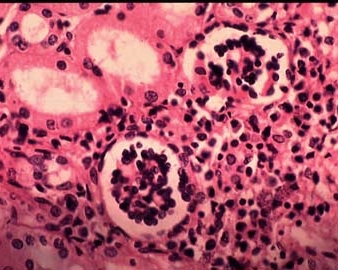| Description | Participants | Agenda | Summary | Products |
|---|
NIMBioS Investigative Workshop
Malaria-Leishmania Co-infection

Topic: Challenges in Modeling Complexity of Malaria-Leishmaniasis Co-Infection in Resource-Limited Regions
Meeting dates: May 26-28, 2015
Location: NIMBioS at the University of Tennessee, Knoxville
Organizers:
Anuj Mubayi,
Mathematical Computational Modeling Science Center and School of Mathematical and Natural Sciences, Arizona State Univ.
Folashade Agusto, Mathematics & Statistics, Austin Peay State Univ., Clarksville, TN
Christopher Kribs, Mathematics, Univ. of Texas, Arlington
Ephantus J. Muturi, Medical Entomology Program, Illinois Natural History Survey, Univ. of Illinois, Urbana-Champaign
Niyamat Ali Siddiqui, Epidemiology and Biostatistics, Health Research, Ministry of Health & Family Welfare, Patna-India
Objectives: Disease-prevention, outbreak-control and health promotion are key functions of public health. Lacking on these fronts within the health system is the major concern for developing countries of controlling infectious diseases. Mathematical and statistical modeling has become an essential tool for the development of control strategies and for the evaluation of mechanisms driving disease dynamics. Key determinants of a given model's potential to aid in such measures are the identifiability of the critical factors specific to a region and the availability of data to parameterize the model. For developing countries in particular, data are often sparse and difficult to collect and the public health infrastructure is largely dilapidated. It is therefore important to understand the public health conditions and challenges facing local populations and types of data that are necessary for a modeling project to be successful. Malaria and leishmaniasis are the two largest parasitic killers in the world. Due to geographic overlap of the diseases, co-infections exist in large populations, but have been poorly investigated. The co-morbidities may result in a poorer prognosis due to the lack of early detection systems or inefficient diagnostic tests for co-infection. The focus of this workshop was to identify challenges for the control of malaria-leishmaniasis co-infections in South Asian and the African continent. The workshop also modeled the complexity involved in the propagation of these co-infections in resource limited regions. The types of data needed to analyze co-infection models and associated uncertainty were assessed. Experts presented field and quantitative challenges with persistence of co-infection cases of malaria and leishmaniasis.

Malaria-Leishmania Co-infection WordPress site
![]()
Live Stream.
Due to technical difficulties, this workshop was not streamed live.
 Summary Report.
This workshop focused on multiple directions in the broader field of emergence and persistence of Malaria-Leishmaniasis co-infection in resource limited countries. In particular, the workshop participants focused on identifying risk factors, developing mathematical and computational modeling techniques incorporating critical risk factors, and classifying its available data to study complex dynamics of malaria and Leishmaniasis co-infection. The emphasis was also on evaluation of control strategies in light of scarce data and resources. Initial discussion between workshop participants resulted in various sets of questions including estimating global prevalence from partially observed data, modeling of diagnostic and therapeutic challenges observed in field, role of social and cultural boundaries, and identifying cost-effective interventions. Participants represented a truly global research community, spanning from developing and developed countries with focus from multiple disciplines.
Summary Report.
This workshop focused on multiple directions in the broader field of emergence and persistence of Malaria-Leishmaniasis co-infection in resource limited countries. In particular, the workshop participants focused on identifying risk factors, developing mathematical and computational modeling techniques incorporating critical risk factors, and classifying its available data to study complex dynamics of malaria and Leishmaniasis co-infection. The emphasis was also on evaluation of control strategies in light of scarce data and resources. Initial discussion between workshop participants resulted in various sets of questions including estimating global prevalence from partially observed data, modeling of diagnostic and therapeutic challenges observed in field, role of social and cultural boundaries, and identifying cost-effective interventions. Participants represented a truly global research community, spanning from developing and developed countries with focus from multiple disciplines.
Workshop Products
Publications
Saldana A, Calzada JE, Pineda V, Perea M, Rigg C, Gonzalez K, Santamaria AM, Gottdenker NL, Chaves LF. 2015. Risk factors associated with Trypanosoma cruzi exposure in domestic dogs from a rural community in Panama. Memórias do Instituto Oswaldo Cruz, Rio de Janeiro, 110(7): 936-944. [Online]
NIMBioS Investigative Workshops focus on broad topics or a set of related topics, summarizing/synthesizing the state of the art and identifying future directions. Workshops have up to 35 participants. Organizers and key invited researchers make up half the participants; the remaining participants are filled through open application from the scientific community. Open applicants selected to attend are notified by NIMBioS within two weeks of the application deadline. Investigative Workshops have the potential for leading to one or more future Working Groups. Individuals with a strong interest in the topic, including post-docs and graduate students, are encouraged to apply. If needed, NIMBioS can provide support (travel, meals, lodging) for Workshop attendees, whether from a non-profit or for-profit organization.
A goal of NIMBioS is to enhance the cadre of researchers capable of interdisciplinary efforts across mathematics and biology. As part of this goal, NIMBioS is committed to promoting diversity in all its activities. Diversity is considered in all its aspects, social and scientific, including gender, ethnicity, scientific field, career stage, geography and type of home institution. Questions regarding diversity issues should be directed to diversity@nimbios.org. You can read more about our Diversity Plan on our NIMBioS Policies web page. The NIMBioS building is fully handicapped accessible.
NIMBioS
1122 Volunteer Blvd., Suite 106
University of Tennessee
Knoxville,
TN 37996-3410
PH: (865) 974-9334
FAX: (865) 974-9461
Contact NIMBioS


